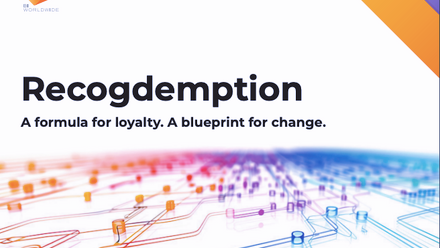Vlakta Hlupic, University of Westminster - reward strategy and culture
What is humane capital? Does it need a different approach to reward?
I think the answer is in the five levels that form my The Management Shift model. This explains the levels that an individual’s mindset goes through and the corresponding organisational culture that goes with each level:
- Level one – both an individual’s mindset and company culture are apathetic, and there is a lot of fear.
- Level two – the employee mindset is reluctant and company culture is stagnating - people do the minimum they can get away with just to get their pay.
- Level three – this is a traditional ‘command and control’ management structure and reflects the majority of organisations. It’s difficult to attract talent, unleash passion for work or maximise profits. We might also see this reflected in disproportionate pay and bonus levels for senior executives.
- Level four – this level requires a shift in leadership thinking. Employees’ mindset is enthusiastic and culture is collaborative. There is trust, transparency and purpose and work is fun. Creativity is unleashed which drives profits and it becomes easier to attract and retain top talent.
- Level five – employees’ mindsets are unlimited and the culture is unbounded. Creative teams work day and night to produce ideas for humanity.
To unleash humane capital, organisations have to be anchored at level four or above.
In terms of pay and benefits practice, how can businesses support the change from a level three to a level four approach?
If we do very repetitive tasks, then more money might make us do more. However, when the work we are doing involves cognitive complexity, money will not be the main motivator – and might even make us perform less well.
Everyone needs a certain level of pay. That’s not the National Minimum Wage, but an acceptable level so that employees have a reasonably comfortable standard of living and don’t have to worry about paying the bills. Some research shows that is about $70 000.
Once that basic income level is satisfied, then people need three other intrinsic things to be motivated and rewarded:
- Autonomy. Level four leaders, HR directors and companies understand that in order for people to be creative they need autonomy. That means time where they can experiment and pursue new ideas and projects. They are given responsibility and are not micro managed.
- Mastery is also important, so that employees know they can keep getting better and better at something.
- Purpose is a huge driver. If individuals can identify their own life purpose, then align that with a clearly articulated organisational purpose, that can drive more creativity, innovation and passion for work as well as bottom-line profit.
Once employees have enough money to pay the bills, does extrinsic reward become redundant? Or does the nature of reward change?
Its nature changes. A business will pay well but at the same time have a huge purpose, a very humane approach and also a humane leader.
There are so many different ways that people can be rewarded or supported that don’t involve a pay check. In my new book, Humane Capital, I interviewed 58 leaders and included 35 case studies. I saw that often people just would not leave humane companies. Even if they could get more money somewhere else, they didn’t want to work in a level-two or three culture.
Even if money doesn’t always motivate, does low pay demotivate employees?
I think we can look at Maslow’s hierarchy of needs for context. Pay has to cover basic needs, to pay the bills, feed ourselves and our family and have a roof over our heads.
With that addressed, we can move toward self-actualisation, which requires purpose. That comes back to the level-four and level-five model again, where we need to work and contribute to something that is much greater than ourselves.
When we get this from employers, there is no need to separate private life and work. Everything becomes interconnected.






